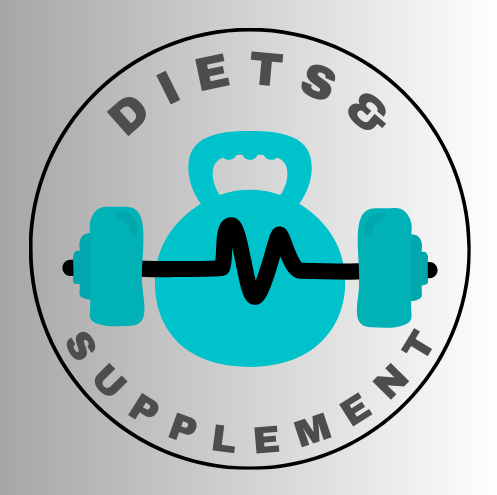 When you imagine improving fitness, you might visualize strenuous workouts, lifting heavy weights, or pushing your endurance to new heights. However, rest is just as critical as the workout itself.
When you imagine improving fitness, you might visualize strenuous workouts, lifting heavy weights, or pushing your endurance to new heights. However, rest is just as critical as the workout itself.
In the realm of fitness, rest isn’t merely the absence of exercise; it’s a proactive component of an overall fitness strategy. It serves as valuable time when your muscles repair, rebuild, and strengthen. Rest is when the magic of adaptation to exercise happens.
Physiologically, rest plays a pivotal role in muscle recovery. After vigorous activity, muscle fibers that have been broken down begin to rebuild stronger than before, a process fundamentally dependent on periods of rest. Skipping this crucial stage can lead to a plateau in performance, or worse, injury.
=====>Try Puravive to help with weight loss<=====
What’s more, taking time to rest is beneficial for mental health. It provides a chance to mentally recharge, reducing the risk of burnout. Motivation, focus, and performance are all influenced by your mental state, making rest an essential element for sustained fitness success.
Recognizing rest as a key player in your fitness routine sets the stage for a more sophisticated understanding of recovery. Let’s explore how recovery extends beyond mere repose and into a science-backed approach that includes sleep, nutrition, and complementary activities.
How Rest Complements Training: The Science of Recovery
When you work out, microscopic damage to muscle fibers occurs, which, during rest, the body repairs and strengthens. That’s the simple science behind muscle growth. Studies have consistently shown that sleep is a crucial player in this repair process. It’s during deep sleep that growth hormone levels peak, aiding in tissue repair and muscle growth.
The recovery process isn’t one-size-fits-all. Some fitness enthusiasts advocate for active recovery, involving low-intensity activities like yoga or swimming on ‘off’ days. Others prioritize complete rest. The choice depends on individual goals, fitness levels, and how the body feels.
Nutrition cannot be overlooked either. Proper intake of proteins, carbohydrates, and fats, along with adequate hydration, directly affects muscle recovery. Muscles need building blocks to repair and grow, and these nutrients provide just that. It’s essential to consume a balanced diet and stay hydrated to facilitate quick and effective recovery.
Creating a Balanced Workout Routine with Adequate Recovery Time
I’ve learned from my own experience that crafting a well-balanced workout routine demands more than just a collection of exercises; it requires a strategic approach to rest and recovery.
A common misconception is that more is better when it comes to fitness. However, without proper rest, we can reach a state of diminishing returns where more work does not equal more strength or fitness gains.
To build an effective workout plan, I allocate rest days throughout the week. These are moments deliberately set aside for the body to heal and strengthen.
I also emphasize the importance of tuning in to our own bodies. They send us signals when rest is needed. Ignoring these cues can lead to injuries and setbacks.
Symptoms like prolonged muscle soreness, fatigue, and decreased performance are clear indicators that more rest might be necessary.
Moreover, it’s vital to recognize that rest is not synonymous with inactivity. On days off from intense training, I often recommend light activities, such as walking or yoga, to promote circulation and aid in recovery.
One pitfall many of us encounter is overtraining. It can be a result of insufficient rest and can lead to injuries, burnout, and a plateau in progress.
To prevent overtraining, monitor your physical and emotional responses to workouts. Are you feeling unusually tired or irritable? These can be warning signs.
Above all, I remind my readers that rest is not a sign of laziness but a fundamental component of a sound fitness strategy. Now, let’s consider how lifestyle choices outside of the gym can bolster the recovery process.
Beyond the Gym: Lifestyle Factors That Enhance Recovery
When we talk about rest and recovery in fitness, our discussions often focus on what happens within the gym walls. But recovery extends into every corner of your daily life. Managing stress effectively is a crucial component of recovery. Techniques such as mindfulness, meditation, and even simple breathing exercises can lower cortisol levels, which otherwise impede recovery.
Moreover, the people you surround yourself with can influence your fitness journey significantly. A supportive community doesn’t just motivate you; it holds a space for your recovery, understanding when you need a break and offering encouragement that aligns with your health goals.
Finally, the environment where you rest plays a significant role. An area that supports sleep, such as a cool, dark, and quiet bedroom, can improve the quality of your rest. Recognize that optimizing recovery doesn’t stop when you step out of your trainers; it continues in the choices you make and the environment you craft around you. Practicing good sleep hygiene and finding stress management tools aren’t just fluff – they’re strategic moves to maximize the potentially transformative periods of rest.
